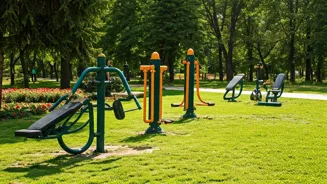Embracing Personal Freedom
The senior years often bring a sense of liberation. Retirement removes the constraints of a regular work schedule, and children might have moved out, granting
elders more freedom to choose how they spend their time. This newfound autonomy allows them to concentrate on activities that genuinely spark joy, like exploring hobbies, traveling, or investing in relationships. It is an ideal period to refocus on personal interests and dedicate time to activities that had to take a backseat in earlier years. For example, an elder with a lifelong passion for painting can now spend hours in their studio, attending classes, and joining art groups. This shift towards personal freedom is a crucial ingredient in elder happiness and well-being.
Pursuing Passionate Interests
Identifying and pursuing passions is fundamental to a fulfilling life in the elder years. Whether it's gardening, writing, learning a new language, or volunteering, engaging in activities that provide a sense of purpose and satisfaction is key. Elders can revisit hobbies they enjoyed in the past or explore new interests. For instance, someone who always dreamt of playing a musical instrument could start taking lessons, joining a local band, or simply playing for personal enjoyment. Another person might find joy in volunteering at a local animal shelter, providing companionship to neglected pets. The pursuit of passions offers a sense of accomplishment and keeps the mind active, promoting mental and emotional health.
Nurturing Social Connections
Maintaining and strengthening social connections is crucial for overall well-being in later life. Strong relationships with family, friends, and community members provide emotional support, combat feelings of isolation, and promote a sense of belonging. Elders should actively participate in social activities, such as joining clubs, attending community events, and maintaining regular contact with loved ones. Simple interactions like having coffee with friends, playing board games with grandchildren, or joining a book club can significantly boost morale. Additionally, exploring community centers and senior groups can help elders connect with people who share similar interests and values, fostering a supportive and engaging social network. Such connections are vital for combatting loneliness.
Prioritizing Physical Health
Good physical health is directly linked to overall happiness and should be a key focus for elders. Regular exercise, a balanced diet, and adequate rest are crucial for maintaining a healthy body and mind. Simple routines, like taking walks, practicing yoga, or engaging in light exercise, can significantly improve physical strength and flexibility. Similarly, eating a nutritious diet, rich in fruits, vegetables, and lean proteins, provides the body with the essential nutrients it needs to function effectively. Proper sleep is also very important, as it helps the body repair and recharge. Regular check-ups with a doctor and proactively addressing any health concerns are vital steps in ensuring elders remain physically fit and active, contributing to their sense of well-being.
Finding Peace Through Activities
Activities such as meditation, spending time in nature, and pursuing creative endeavors, can greatly enhance mental peace and emotional stability. These practices offer opportunities for self-reflection, stress reduction, and a deeper appreciation of life. Practicing meditation can help clear the mind and promote inner calm, while spending time in nature can provide a sense of tranquility and connection to the natural world. Engaging in creative activities, such as painting, writing, or playing music, allows elders to express their emotions and tap into their creative potential. Even just sitting in the garden, or listening to birdsong can provide a profound sense of serenity. By incorporating these activities into their daily lives, elders can find peace and enhance their overall emotional wellness.















